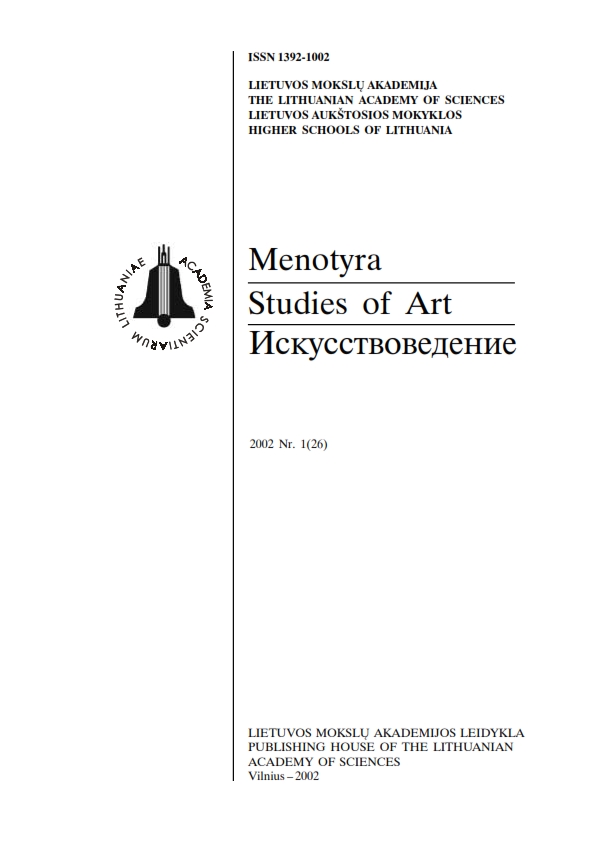Apie nepublikuotus Vilniaus periodo Stanisławo Moniuszkos sceninius kurinius
On the non-published theatre works of Vilnius period by Stanisław Moniuszko
Author(s): Vida BakutytėSubject(s): Theatre, Dance, Performing Arts, Music, 19th Century
Published by: Lietuvos mokslų akademijos leidykla
Summary/Abstract: The article investigates the early theatre works (the scores of which have yet not been published) by the well-known Polish composer Stanislaw Moniuszko who lived in Vilnius during 1837-1858. Following the Warsaw and Vilnius archive materials, almost unknown moments of the composer's work periods are revealed.Despite a very self-critical stance, the one act operetta "Lodging for the night in Apennines" (1838 or 1839, libretto by A. Fredo) was shown with success in Vilnius and Lvov. The types of operetta's characters prove the influence of the end of the 18th c. - beginning of the 19th c. buffo caricato roles and 16th c. commedia dell' arte canons. The excerpts of these operettas were sung in Lithuania and Poland by popular singers.Within the group of reviewed works, the two-act opera "Ideal, or the New Precioza" (the end of 1939, libretto by O. Milewski) should be distinguished. In the large and numerous score amount one can see many difficult orchestra and vocal scenes, the developed overture and finale. The composer chose several of the opera's episodes for his other operas - "Halka" and "Verbum nobile" with a little change.The archival documents of the two-act comedy-opera "Karmanjolo, or the French like joking" (1842-1841 winter, libretto by O. Milewski following Theaulon de Torges and Jaime vaudeville) were connected with Vilnius in the most obvious way. It contains the names of Vilnius theatre actors and from the libretto remarks one can foresee the outline of the Vilnius performance in which the best actors of the troupe, J. Rogowski, J. Surewicz, and the singer E. Schmidkoff, took part. In this opera the composer attempted to create the musical characteristics of different role groups - Italian countrymen and French soldiers. In all above-mentioned "little" operas there are arias, duets and quartets as well as clear attempts to make the role of the orchestra more significant. These elements vividly reveal the birth of process of the Moniuszko opera vision and reveal rather mature moments of the Vilnius period of the composer's work, although today they are little known.
Journal: Menotyra
- Issue Year: 2002
- Issue No: 1(26)
- Page Range: 7-16
- Page Count: 10
- Language: Lithuanian

